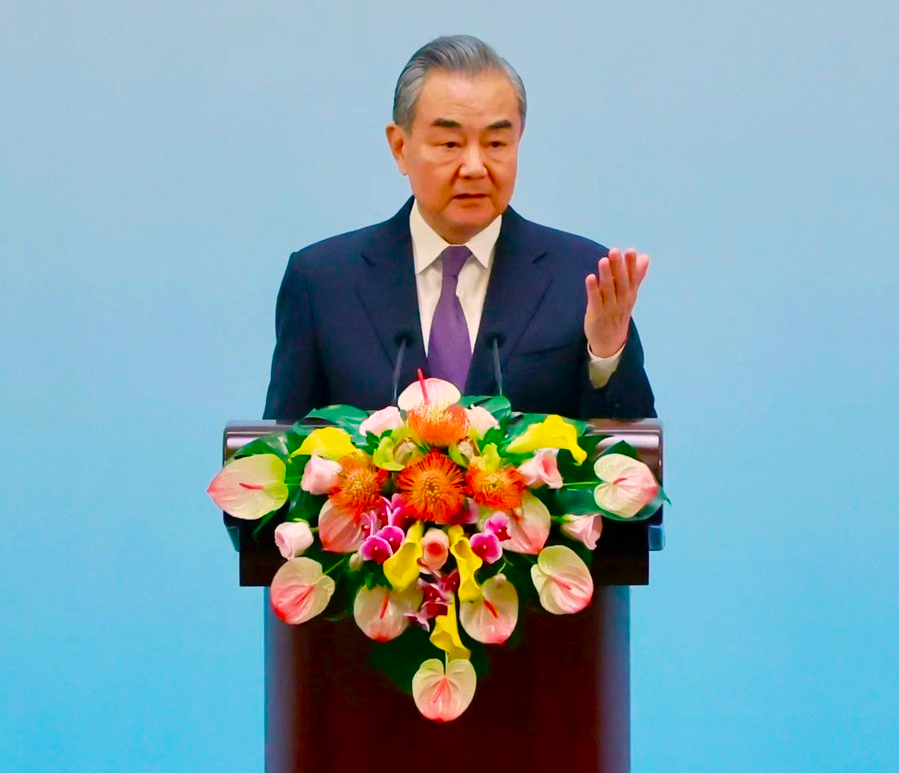By Mewati Sitaram – Beijing
As the world commemorates the 70th anniversary of the Five Principles of Peaceful Coexistence, Chinese Foreign Minister Wang Yi highlighted their enduring relevance and China’s commitment to fostering global cooperation. In a recent address, Wang emphasized the principles’ evolution from a regional agreement to a cornerstone of international relations.
The Five Principles, originally established by China, India, and Myanmar, promote mutual respect for sovereignty, non-aggression, non-interference in internal affairs, equality and mutual benefit, and peaceful coexistence. Wang stressed that these principles have transcended their original context to become fundamental norms in international law and diplomacy.
Building on this legacy, Chinese President Xi Jinping has proposed the concept of “a community with a shared future for mankind.” This vision, according to Wang, represents a natural progression of the Five Principles, adapted to address contemporary global challenges. It aims to create a new model of international relations based on mutual respect, equality, and win-win cooperation.
Wang emphasized the critical juncture facing humanity today, with choices between unity and division, cooperation and confrontation. He called for a recommitment to the spirit of the Five Principles, urging nations to prioritize peace, shared prosperity, and collective problem-solving in the face of global challenges.
A significant portion of Wang’s address focused on the role of the Global South in shaping world affairs. He encouraged developing nations to take a leading role in building a community with a shared future, emphasizing their importance in maintaining peace, driving open development, and reforming global governance structures.
To support this vision, China has announced several initiatives aimed at fostering cooperation among Global South countries. These include establishing a research center, offering scholarships, providing training opportunities, and launching a youth leadership program. These efforts reflect China’s commitment to nurturing partnerships and promoting knowledge exchange among developing nations.
Wang reaffirmed China’s dedication to the Five Principles, noting their incorporation into the country’s approach to international relations. He pledged China’s continued support for these principles and its commitment to working alongside other nations to build a shared future for humanity.
Wang emphasized China’s commitment to peaceful development, high-standard opening up, and active participation in addressing global hotspots. He also highlighted the importance of the upcoming Summit of the Future in shaping global governance.
As a symbol of this renewed commitment, China will issue a Beijing Declaration reflecting the common understandings reached during the commemorations. This document will serve as a guidepost for future international cooperation based on the enduring principles of peaceful coexistence.
In conclusion, Wang Yi’s address underscored China’s vision for a world united by shared interests and common challenges. By building on the foundation of the Five Principles of Peaceful Coexistence and embracing the concept of a shared future for mankind, China aims to contribute to a more harmonious and prosperous global community.

Editor in Chief : Mewati SItaram











